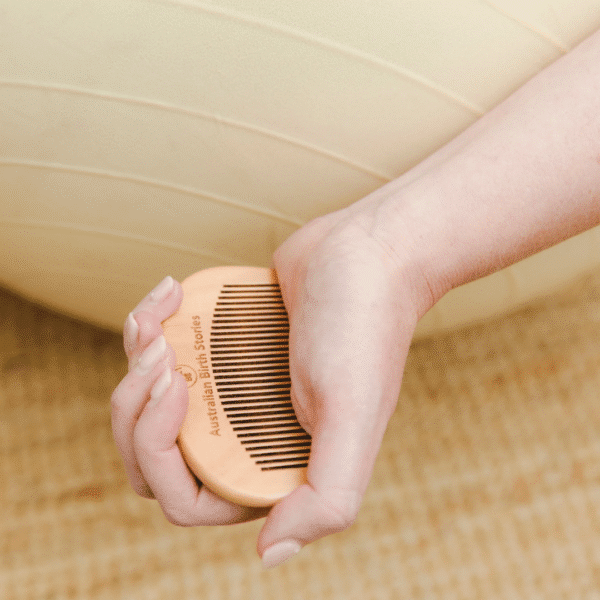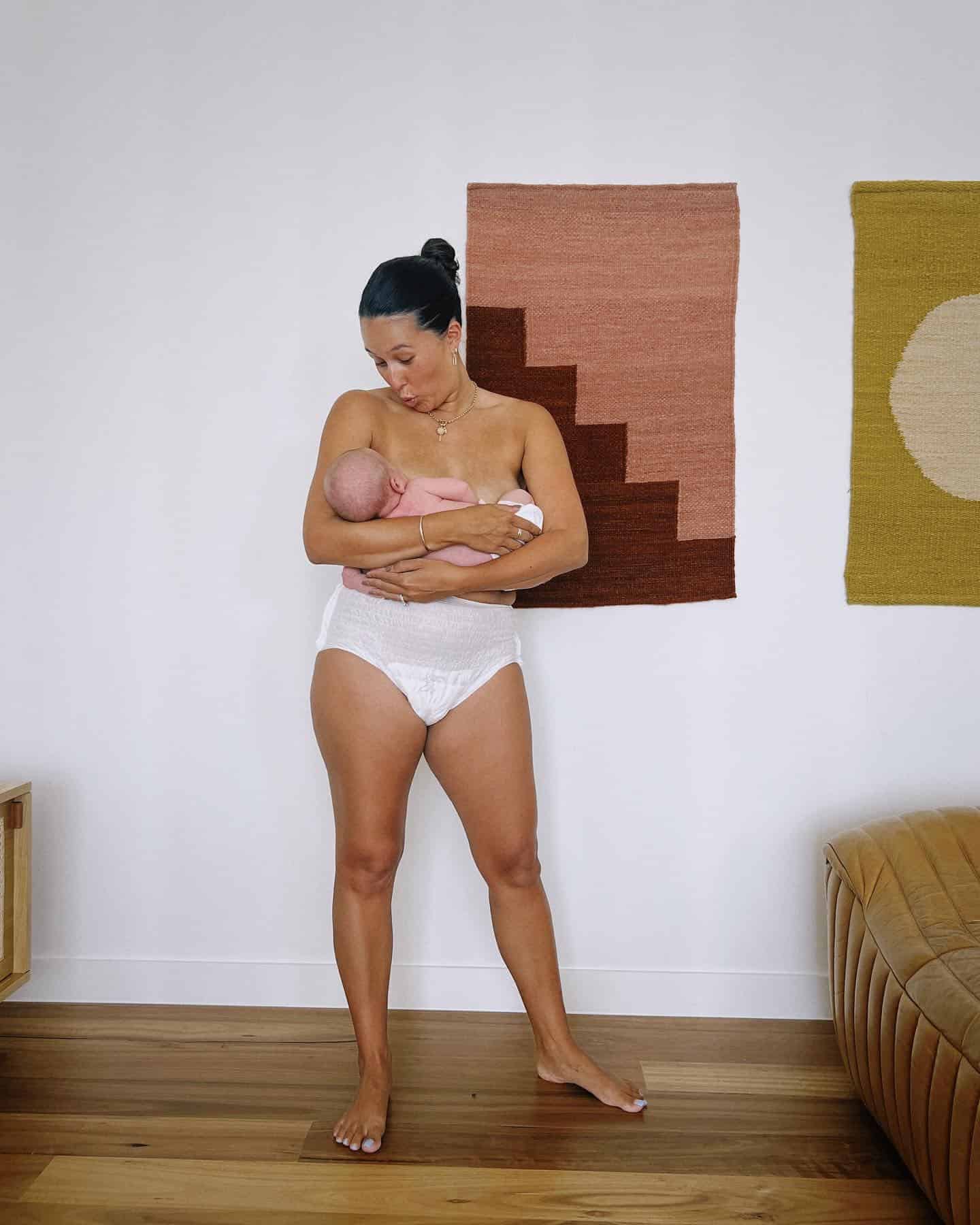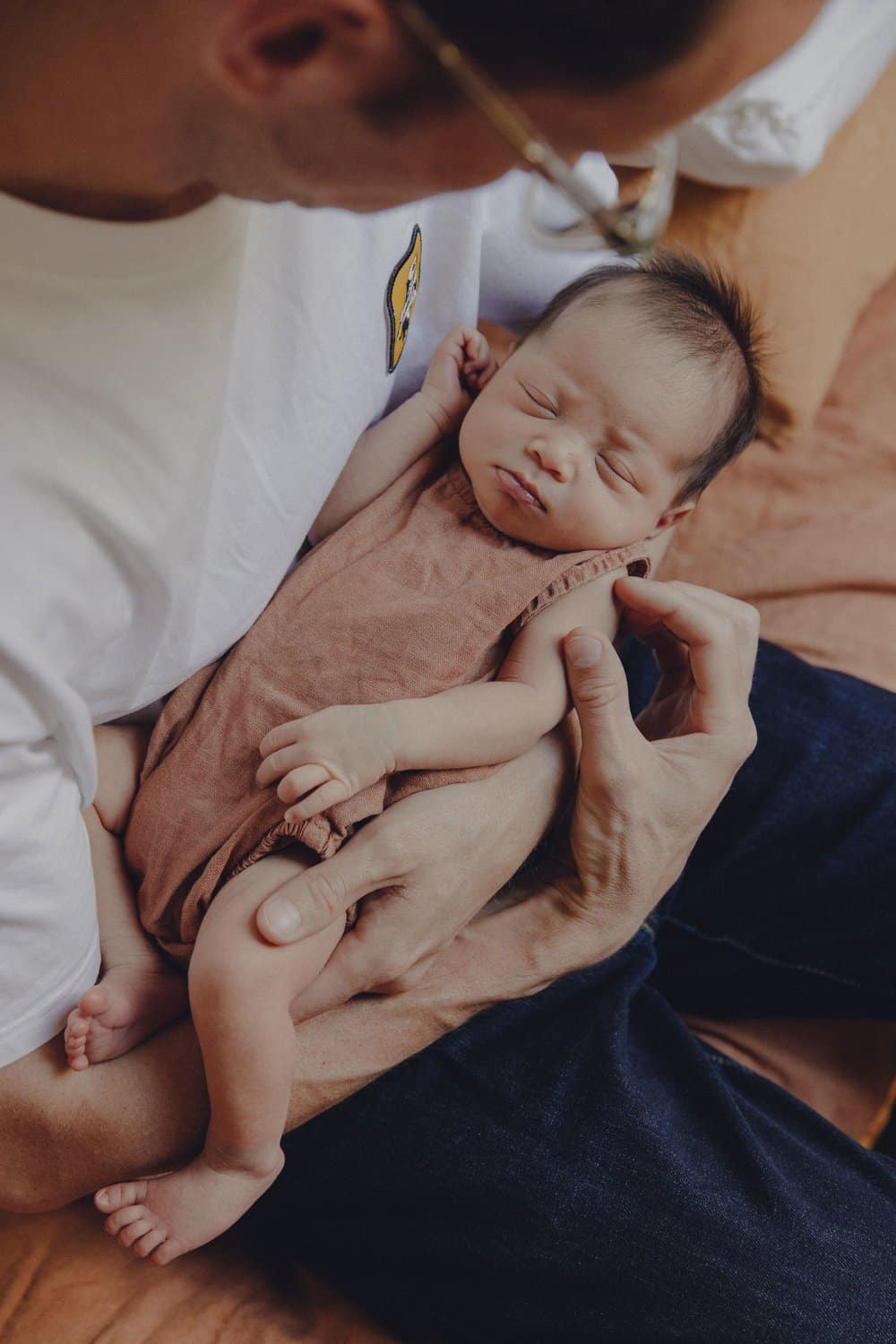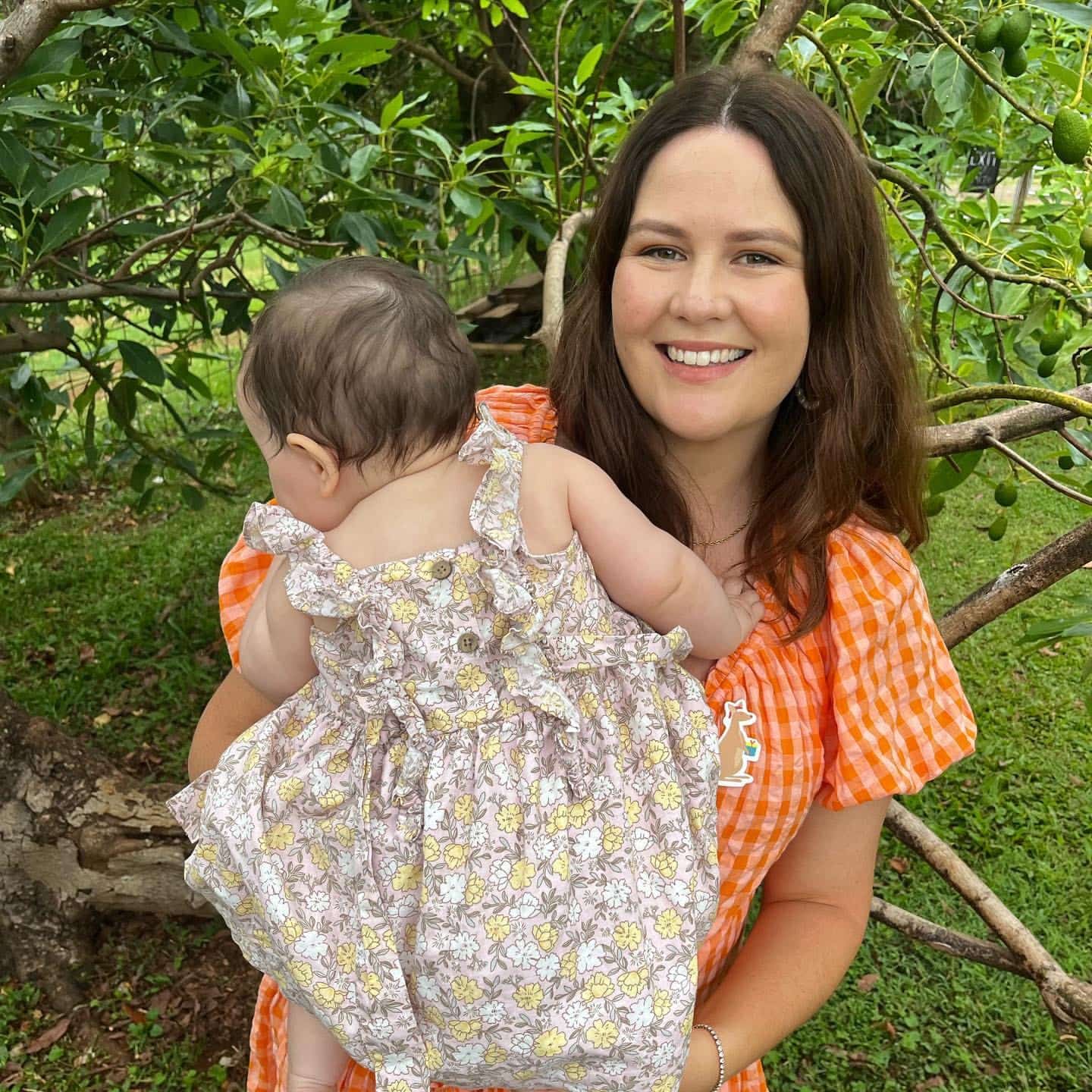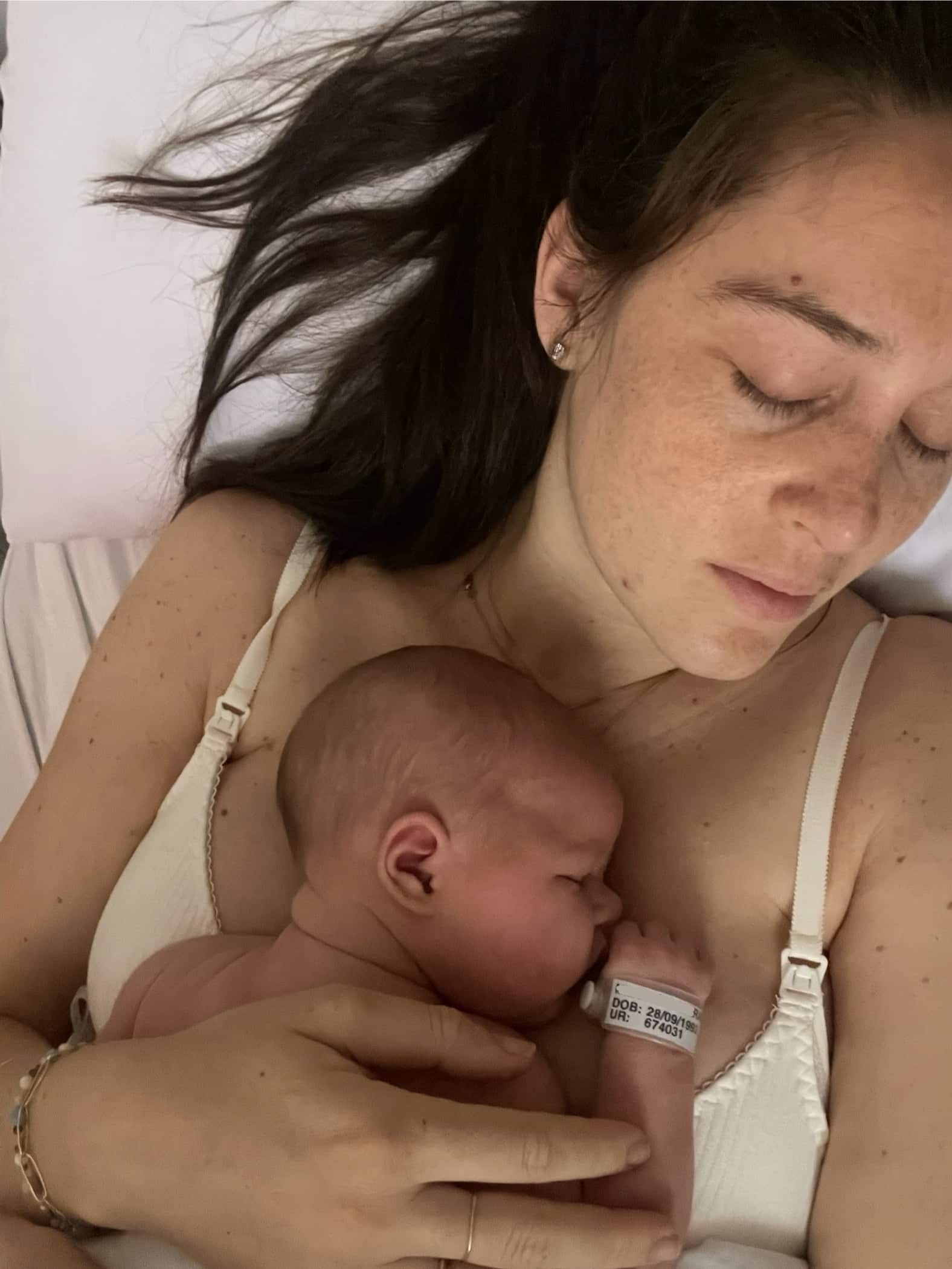Podcasts Alicia Lucas
EPISODE 240
Alicia Lucas
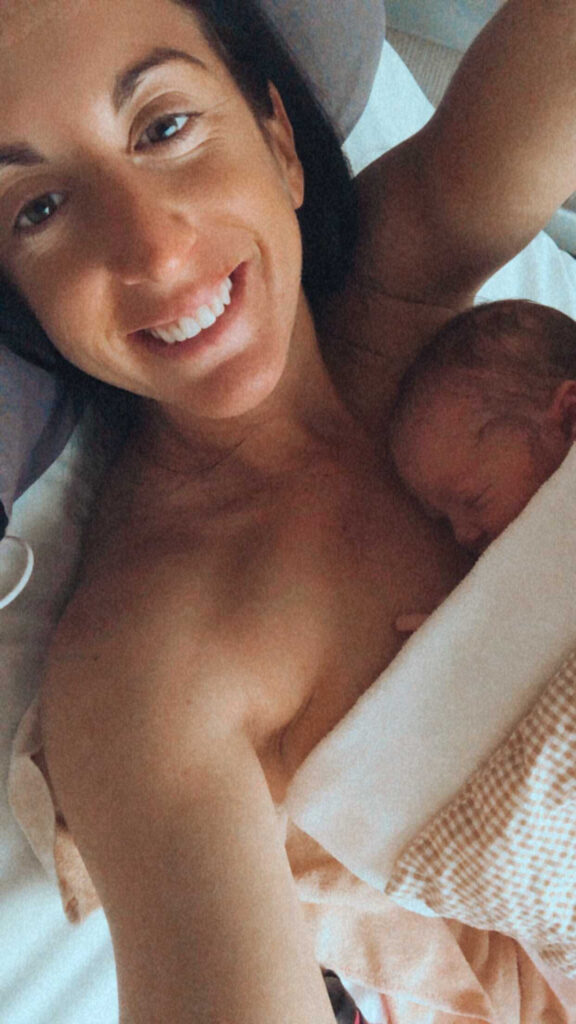
Alicia had been on the pill for much of her sporting career and had skipped periods to enhance her sporting performance so she had no idea how long it would take her to fall pregnant. She was pleasantly surprised when she received a positive test only months after coming off the pill.
Alicia was in Australia for the first half of her pregnancy and apart from a few days of spotting at eight weeks (implantation bleeding) she had a really straightforward first trimester. She attended a few appointments at Wagga hospital before travelling to Tokyo to be with her husband.
“In the Japanese system, you see the obstetrician and have a scan every month till 30 weeks. After that you have an appointment and scan every fortnight and that moves to weekly at the end of the third trimester.
“Japan is in their fourth state of emergency with Covid. When we were there you always had to wear a mask and everything was open but there was an 8pm curfew. Everything was operating as normal but the case numbers were significant. You have to pay to get tested over there, unless you’re a close contact of someone who has tested positive. We stayed in our small area and only saw the same people in our bubble.
“The hospital offered pre-natal classes that you can do one-on-one with the midwife and they also refer you to a local doula who offers free support groups or paid online classes. We had a hands-on antenatal expressing class with the midwife, we went through some basic birthing classes in Japan but I was also still connected with Wagga hospital so I got to join the hospital’s online birth preparation classes.
“At 28weeks the Japanese midwife encouraged massaging the breasts to start the antenatal expressing process but I have a few midwife friends who had advised me to start late in the third trimester and everything I read online said you should start at 37weeks so I definitely didn’t take the Japanese advice in that regard.
“Matilda was breech for my entire third trimester and I tried everything to change her position as I intended to have a natural birth but nothing worked.
“I spoke at the Australian embassy in Tokyo on International Women’s Day; the night before the birth. The ambassador of Japan invited me to be the guest speaker and I spoke about challenging the social stigma of pregnancy in Japan and the Japanese crowd were in shock that I was going into hospital that night.
“Matt wasn’t allowed in the theatre at all. He was devastated and worried about me…and just sad that he couldn’t be there to support me. We tried everything to wrought the system and put our case forward to change the rules but the hospital couldn’t budge because the Covid cases were high. Even if I had a vaginal birth, he wouldn’t have been able to be there to support me during labour which would have been even more challenging. We did consider a home birth but it wasn’t to be with Matilda being breech.
“We were together for 15 minutes before the birth and it was so strange, thinking that we were about to get our baby. He was on facetime and I had an English-speaking midwife next to my head explaining what was happening. I held the phone over the cover so he could watch the surgery and relay it to me later on. Overall, it was such a bizarre experience – my first ever surgery and the Covid protocols – it was quite overwhelming.
“But then the next minute Matilda is smooshed into my face and I had the oxygen mask on, my covid mask and hairnet, and she was basically on my throat and I could hardly see her. It really wasn’t as great as I envisioned. They originally don’t do skin-to-skin straight away so we had requested that and we’d also requested delayed cord clamping which they honoured. Matt had skin-to-skin time with Matilda while I was being stitched up.
“Within half an hour we were all back together and she did the breast crawl and latched straight away. Matt was originally only allowed to have thirty minutes with us but we facetimed our families in Australia and the midwives were too polite to interrupt so he ended up staying with me for three hours.
“In Japan you stay for seven nights with a caesarean birth (4-5 nights with a natural birth). They really prioritise the mother recovering and her care and they’ll take the baby to the nursery if you need sleep. They didn’t let me get out of bed for the first 24 hours and I wasn’t allowed to eat till the next day. Matt wasn’t allowed to visit the hospital again after the birth so I was discharged three days after birth. I couldn’t leave till 7:30 on the Friday night because I had to have a celebration dinner; a cloth table with a three-course meal and beautiful crockery. There was steak, pasta, soup, grape juice in a red wine glass and it’s delicious.
“As soon as Matilda was born, I wanted to be back in Australia. We had a plan – we had a flight booked for eight weeks after birth but we didn’t realise how long it would take to get her citizenship certificate. I was struggling without my family and support crew. Matt and I just didn’t know so many things – we were first time parents in a foreign country…I just wanted to be home.”
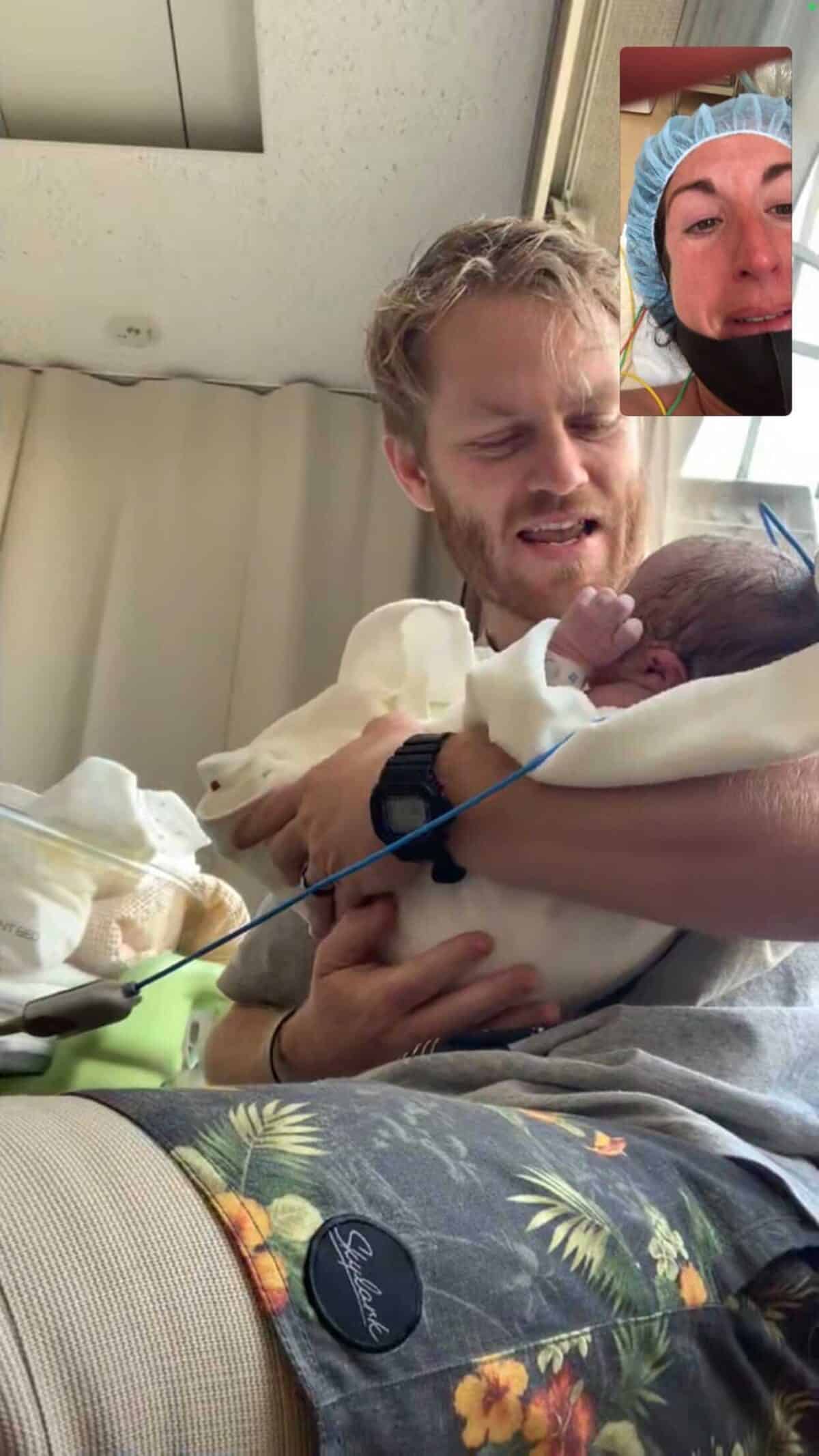
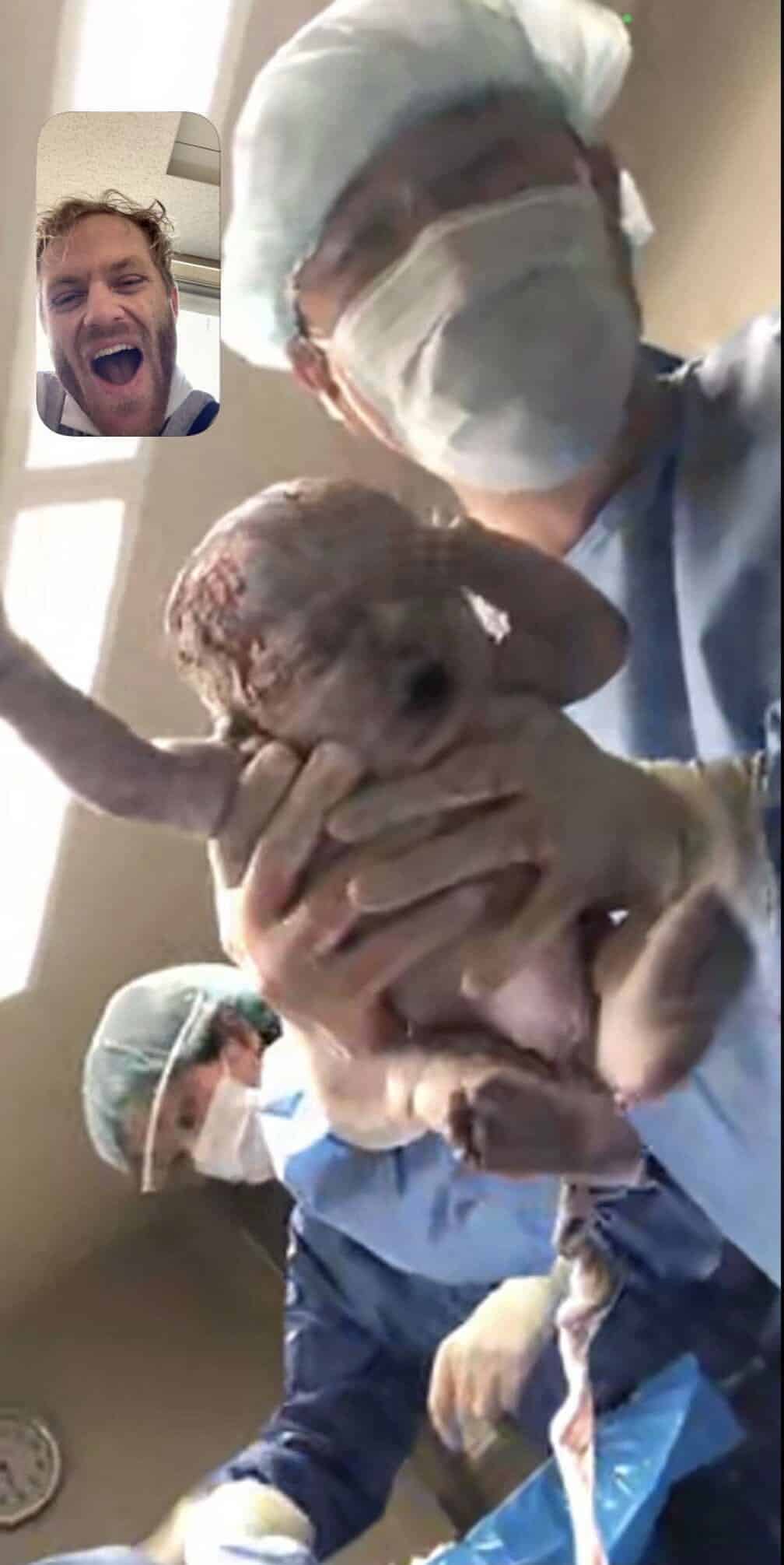
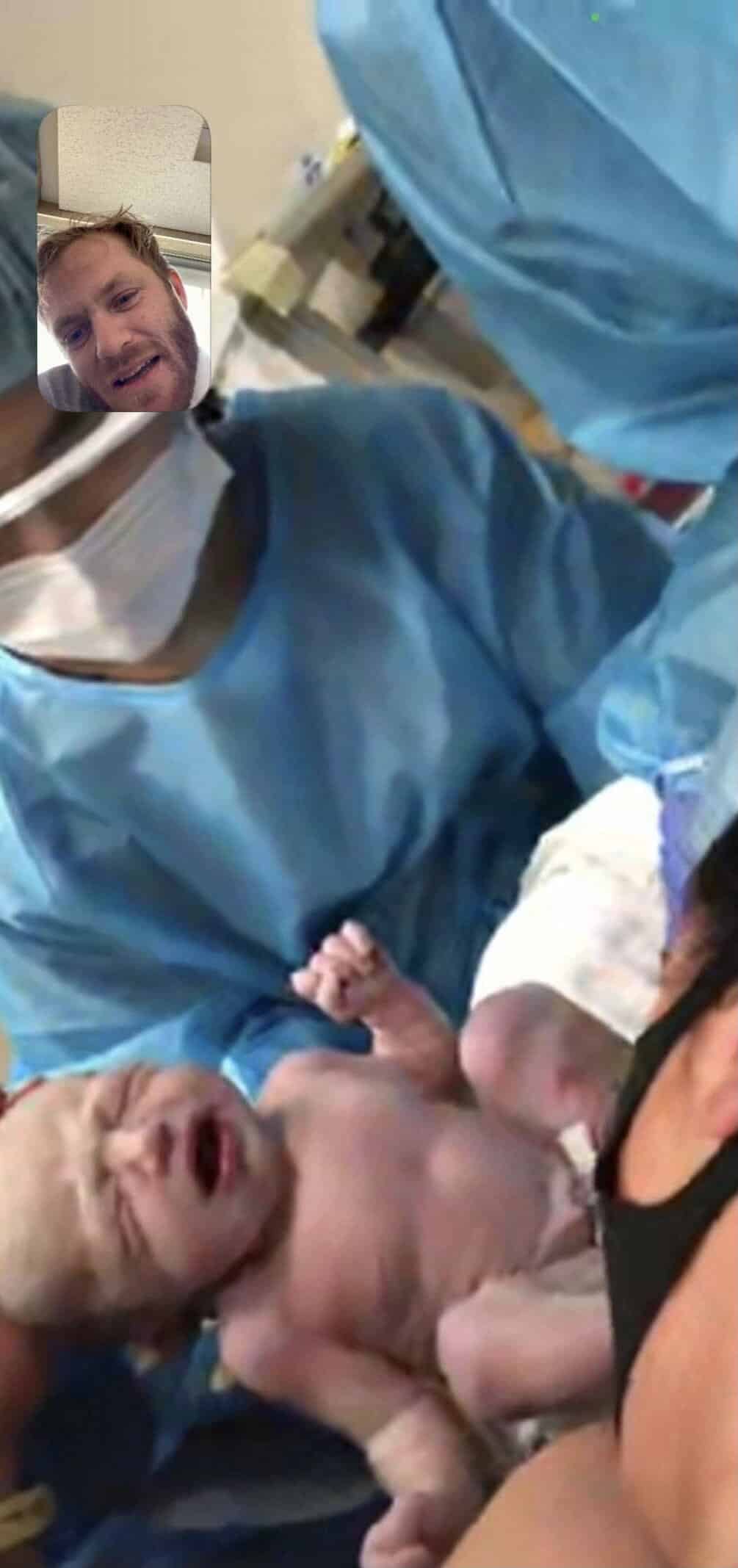
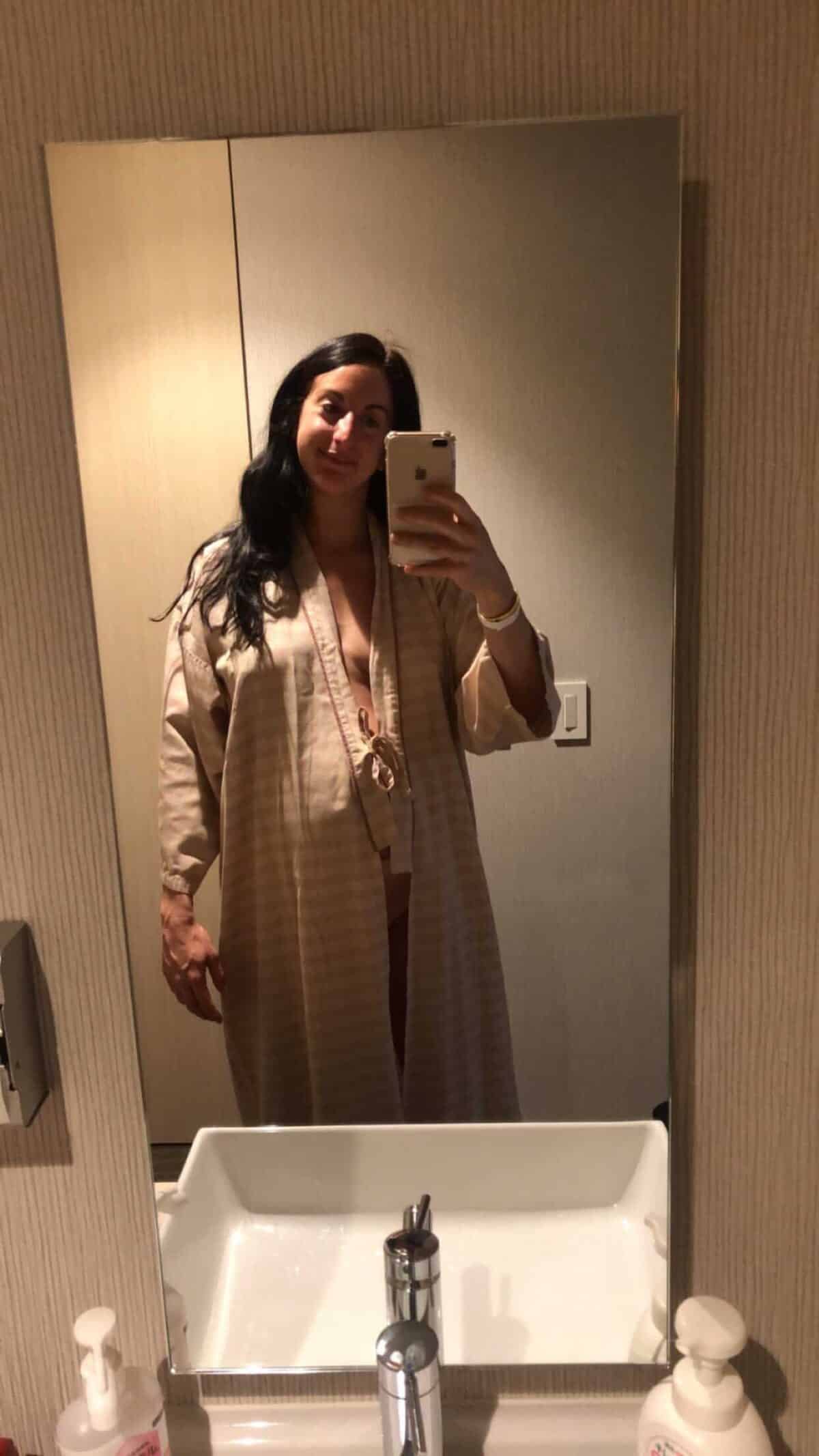
Topics Discussed
Breech, Caesarean, Covid, Tokyo birth
Episode Sponsor
Today’s episode is brought to you by Purebaby. Purebaby is an Australian owned company creating the softest, certified organic cotton clothing for babies and toddlers, born out of a desire to create beautiful and easy-to-use products made with awareness and care.
Purebaby’s organic cotton is certified by the Global Organic Textile Standard (GOTS), meaning that each item is free from harsh chemicals, irritants and pollutant materials. The certified organic cotton used in Purebaby’s ranges is soft, strong and resilient, allowing delicate young skin to breathe naturally.
Looking for the best choice for your little one? Look no further with Purebaby’s Essentials collection. The Essentials collection combines highly functional features, such as in-built mittens, two-way zips and safety folds, with timeless designs – all while being kind to the environment. The Essentials collection was designed with comfort and easy dressing in mind. Featuring growsuits, singlets, bodysuits, hats, socks and more, Purebaby has everything needed for your little one’s wardrobe.
Purebaby is also equally committed to sharing their abundance of knowledge through their Journal, Podcast, Educational Webinars, checklists and ‘how-to’ videos. All designed to make the journey into first-time parenthood that little bit easier! Inspired by the beauty in nature, each Purebaby piece is soft and comfortable — beautifully designed, beautifully organic. To shop the Essentials Collection and everything else you need for your little one, head to www.purebaby.com.au and follow them on instagram @purebabyorganic
Categories
Related Products
-
Birth Combs: Harness Your Body’s Natural Pain Relief
$24.95Crafted from smooth, natural wood, our birth combs activate specific pressure points in your hands that trigger your body’s innate pain-relieving responses.
Join the conversation
Sign up to get the latest updates, freebies, podcast releases straight into your inbox
@AustralianBirthStories
Follow along with us
@AustralianBirthStories
Follow along with us
@AustralianBirthStories
Follow along with us
@AustralianBirthStories
Follow along with us
@AustralianBirthStories
Follow along with us
@AustralianBirthStories
Follow along with us
@AustralianBirthStories
Follow along with us
@AustralianBirthStories
Follow along with us
@AustralianBirthStories
Follow along with us
@AustralianBirthStories
Follow along with us
@AustralianBirthStories
Follow along with us
@AustralianBirthStories
Follow along with us
